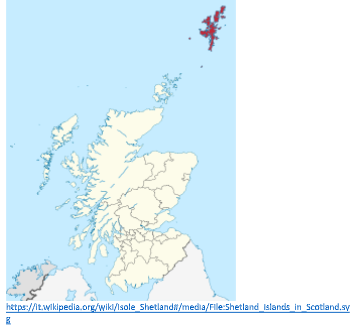The COVID-19 Island Insights Series is an initiative led by the Strathclyde Centre for Environmental Law & Governance (SCELG) and the Institute of Island Studies (IIS) at the University of Prince Edward Island (UPEI) in collaboration with Island Innovation. The series aims to bring together critical assessments of how specific islands around the world have performed during the COVID-19 pandemic and the extent to which their recovery plans are able to promote long term resilience and sustainability.
Every two weeks, Island Innovation will release COVID-19 Island Insights Series from two different islands. This week we are in Northern Europe and focusing on the two sub-national island jurisdictions of Shetland and the Åland Islands. The piece on Shetland is authored by Andrew Jennings and the piece on the Åland Islands by Petra Granholm.
This week, we are looking towards colder climates with insights from two sub-national island jurisdictions of Northern Europe. The Shetland Isles of Scotland and the autonomous Åland Islands of Finland. Both have comparable population sizes and have to date managed to keep infection numbers relatively low, although in Shetland there have unfortunately been 8 fatalities.
Both islands have suffered socio-economic blows from global shutdowns and travel restrictions, including to their tourism industries, Shetland’s fishing industry and the Åland Islands’ shipping industry. In the Åland Islands, issues also arose regarding the division of powers between the islands and the national government in implementing lockdown measures. However, in part through a combination of government financial support and their fairly diversified economies, both islands have shown resilience in the face of the crisis.
Looking towards the future, in Shetland, a number of large development projects in a varied range of sectors are to be the focus of recovery plans. In the Åland islands, the pandemic has reinforced the aims and role of their Development and Sustainability Agenda, a local action plan devised in 2016 that sets out a vision for implementation of the SDGs, as well as the importance of local participation and inclusion of various stakeholders’ viewpoints in the formulation of recovery plans.
The COVID-19 Island Insights Series will lead to a series of “thematic primers” aimed at assisting policy makers and wider island related stakeholders to encourage islands to move to a more resilient and sustainable future.
List of islands covered by the COVID-19 Island Insights Series (list subject to change):
- Åland Islands (Finland)
- Barbados
- Croatian Islands
- Egadi Islands (Italy)
- Grenada
- Guam (USA)
- Hawai’i (USA)
- Iceland
- Jamaica
- Lesvos (Greece)
- Malta
- Mauritius
- New Zealand
- Newfoundland (Canada)
- Okinawa (Japan)
- Prince Edward Island (Canada)
- Saint Helena (UK)
- Seychelles
- Shetland Islands, Scotland (UK)
- Solomon Islands
- Trinidad & Tobago
Click here to view the Strathclyde Centre for Environmental Law & Governance (SCELG) website.
Click here to view the University of Prince Edward Island (UPEI) website.
Click here to view the University of Strathclyde website.

Island Innovation is a social enterprise and digital media company at the intersection of sustainable development and communications, offering specialised services across various sectors. We bring together the private sector, government, utilities, NGOs and universities to advance innovation for sustainability and prosperity in islands worldwide.



















